04 - How to Winter
“Winter for me, especially this year with changes happening in my life and also with the pandemic, it’s teaching me about surrender. It’s teaching me about energy budgeting. It’s teaching me about slowing down and about being instead of doing.”
In this short episode, co-host Jay Erickson explores the value of embracing winter. He explores how winters can show up for us as individuals, organizations and social movements through three separate conversations in the wild with Josh Viertel, co-founder of Harlem Valley Homestead; Chloe Cockburn, lead for social justice at Open Philanthropy; and Zainab Salbi, renowned humanitarian and founder of Women for Women International.
This winter, in the middle of the cultural winter we have been plunged into by the pandemic, how might we learn to slow down and cultivate the healing, repair and contemplation that winter can offer? How can we use this time to plan and see our lives and endeavors more clearly? What can be cleared to make space for the growth in the springtime?
In her 2020 New York Times Bestseller, “Wintering: The Power of Rest and Retreat In Difficult Times,” author Katherine May points out:
“It’s a time for reflection and recuperation, for slow replenishment, for putting your house in order. Doing those deeply unfashionable things — slowing down, letting your spare time expand, getting enough sleep, resting — is a radical act now, but it is essential. This is a crossroads we all know, a moment when you need to shed a skin. If you do, you’ll expose all those painful nerve endings and feel so raw that you’ll need to take care of yourself for a while. If you don’t, then that skin will harden around you.”
So grab a cup of your favorite hot drink and join us for a little meander into what it means to winter well.
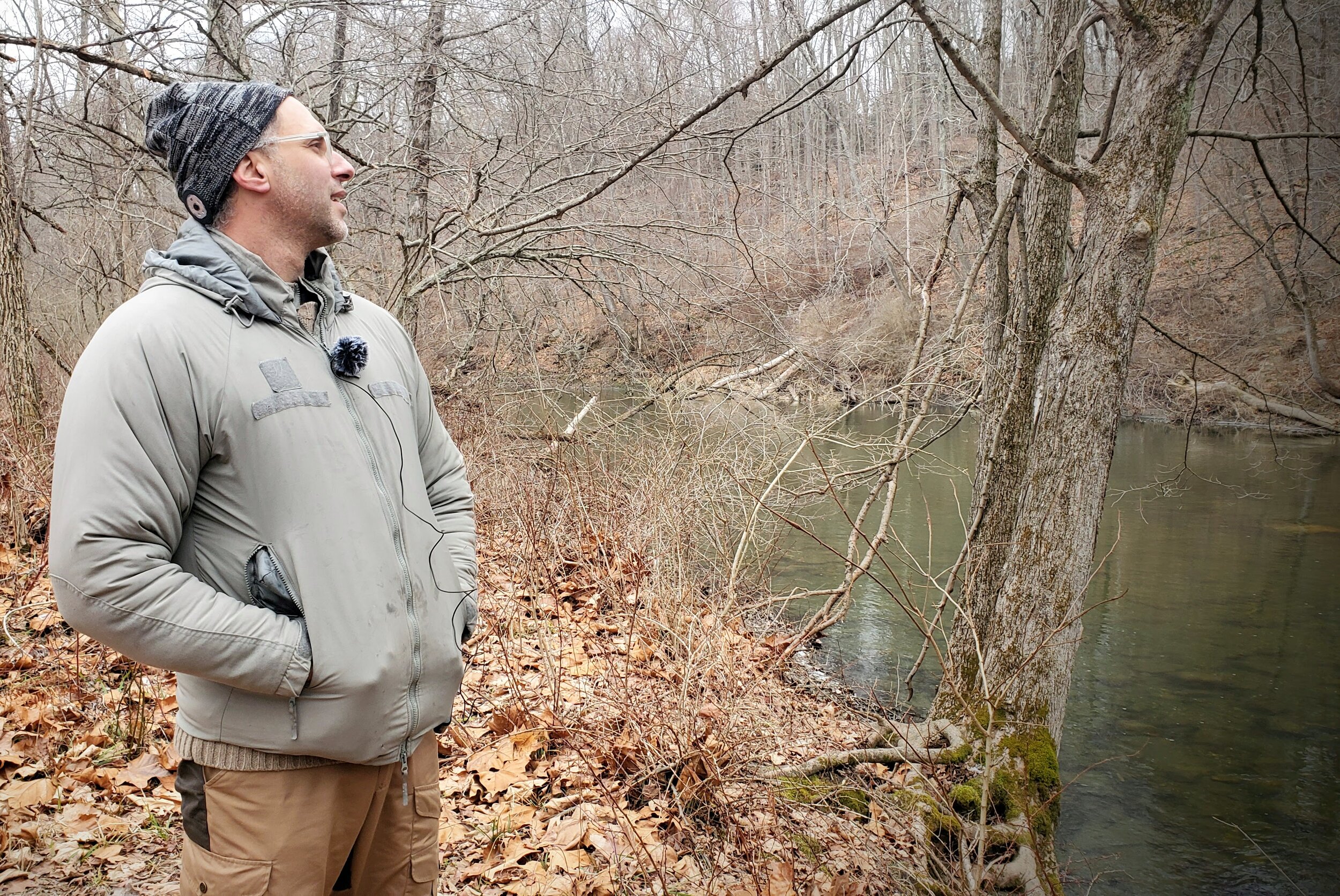
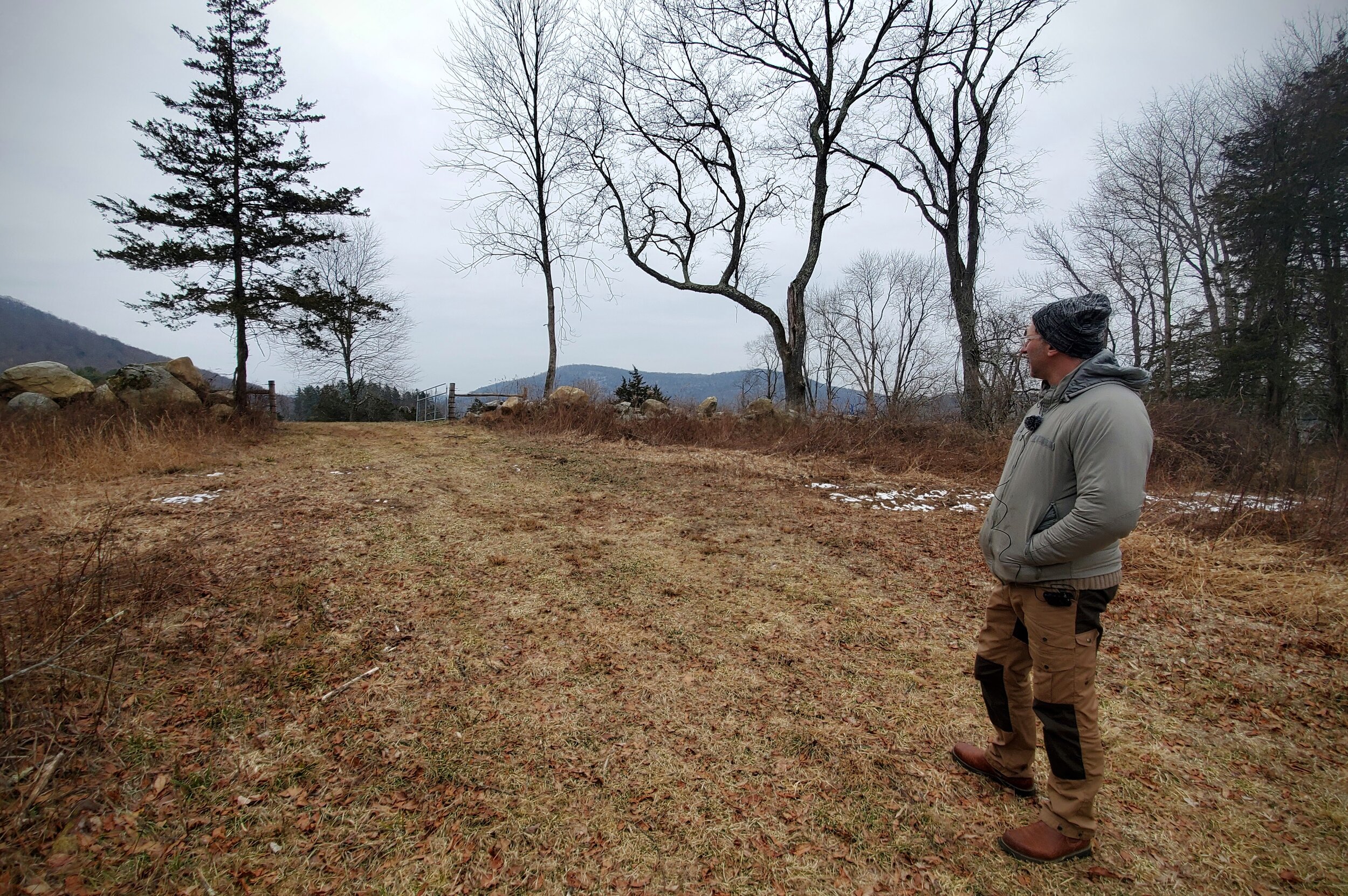
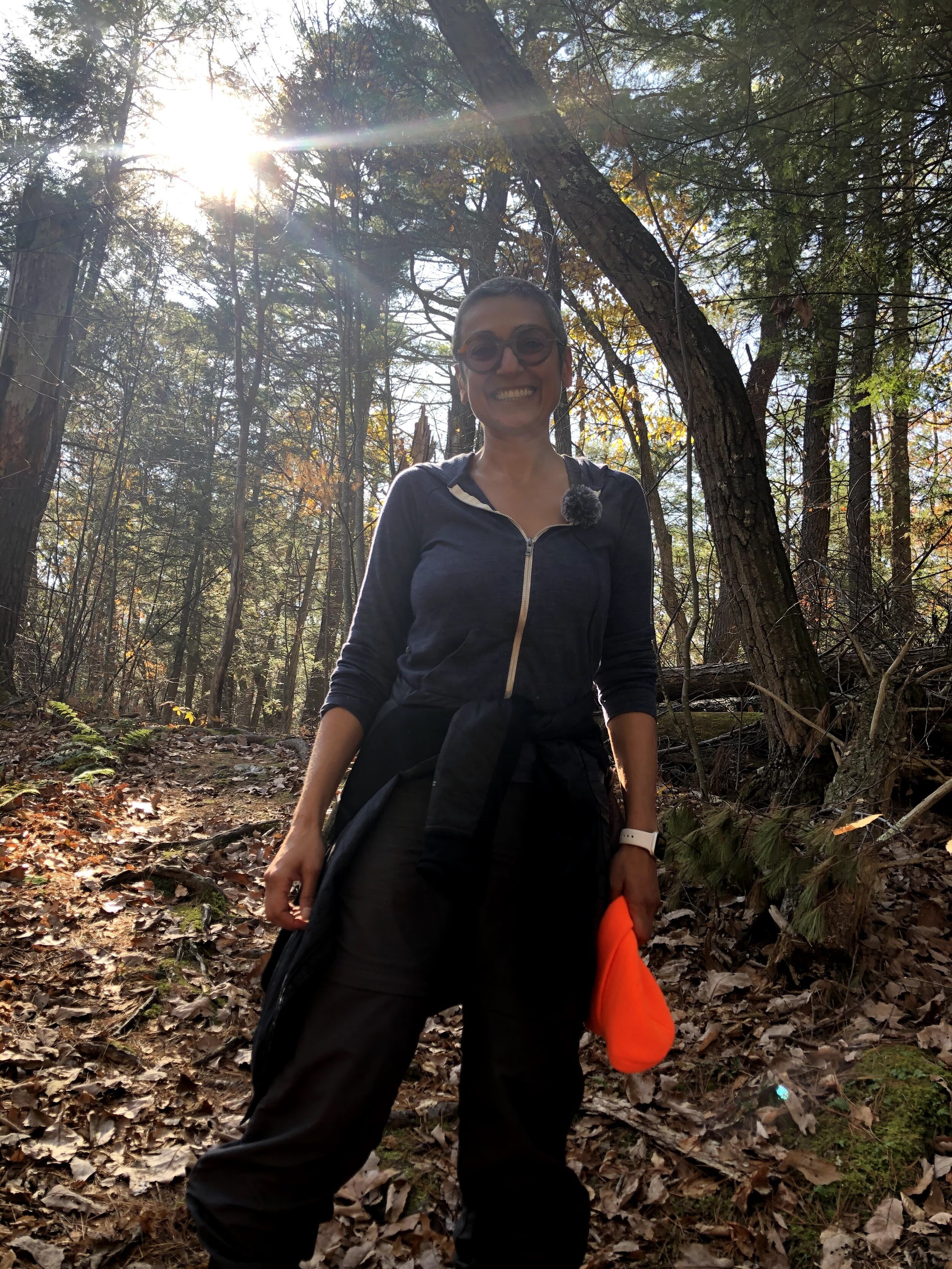
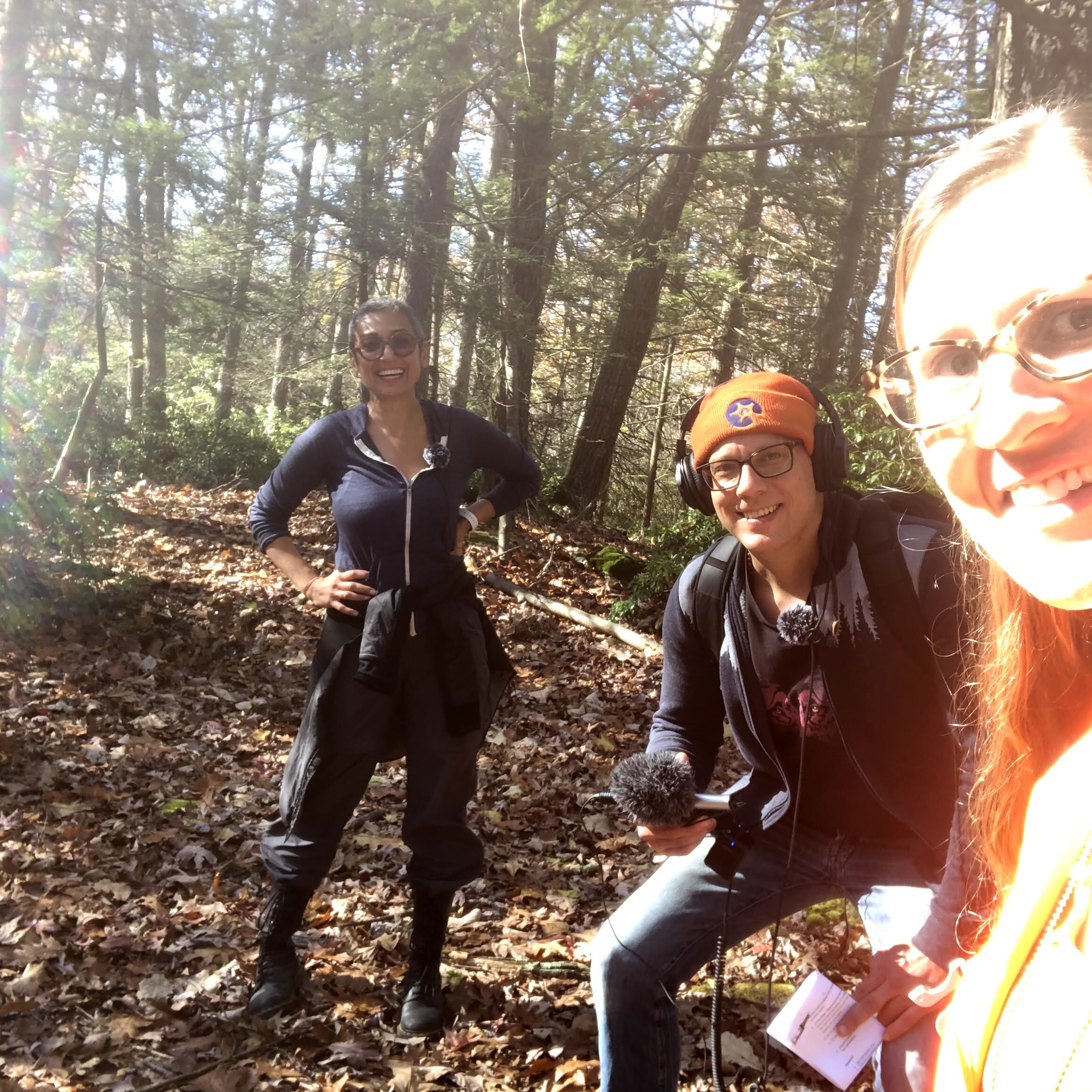
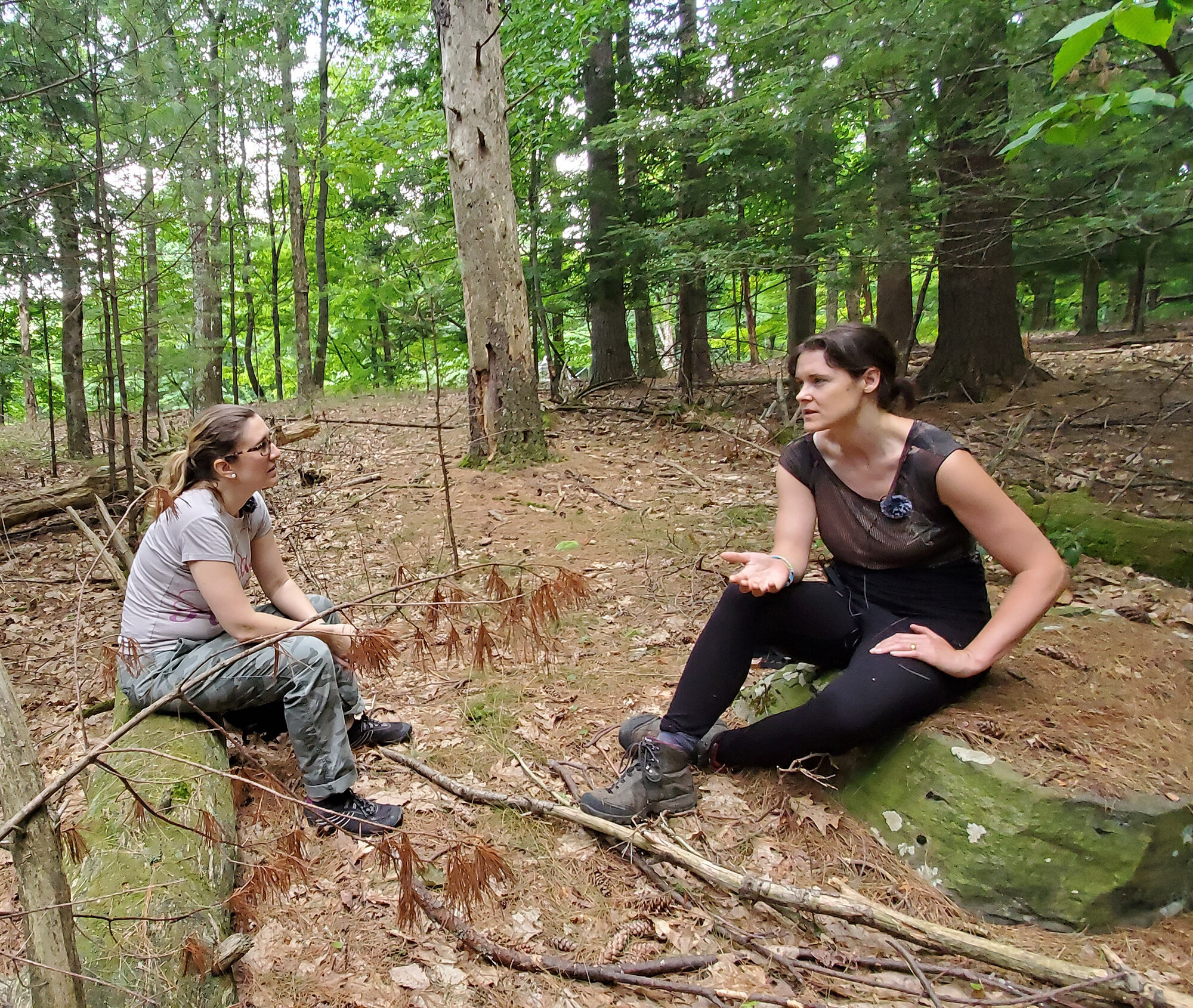
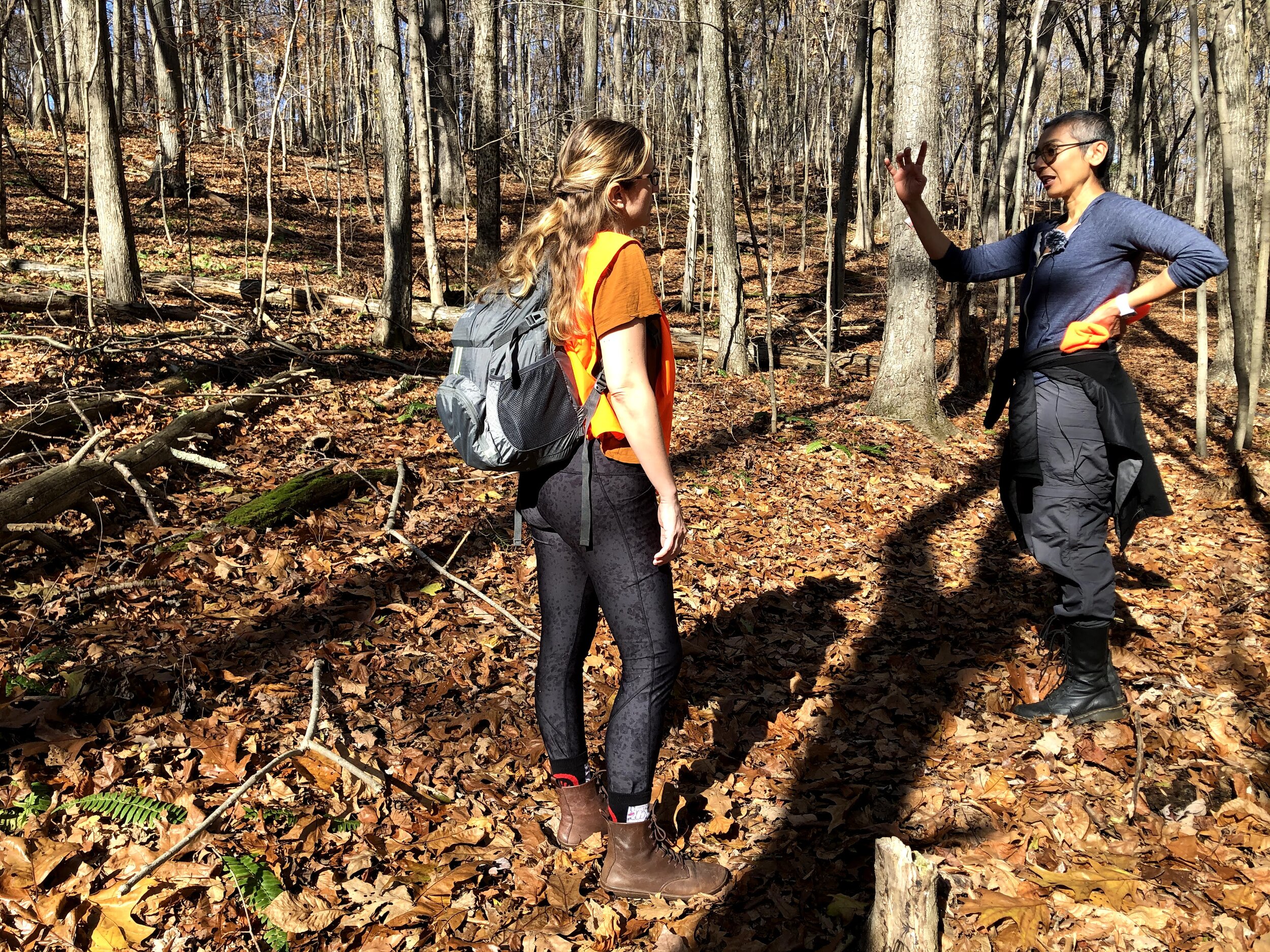
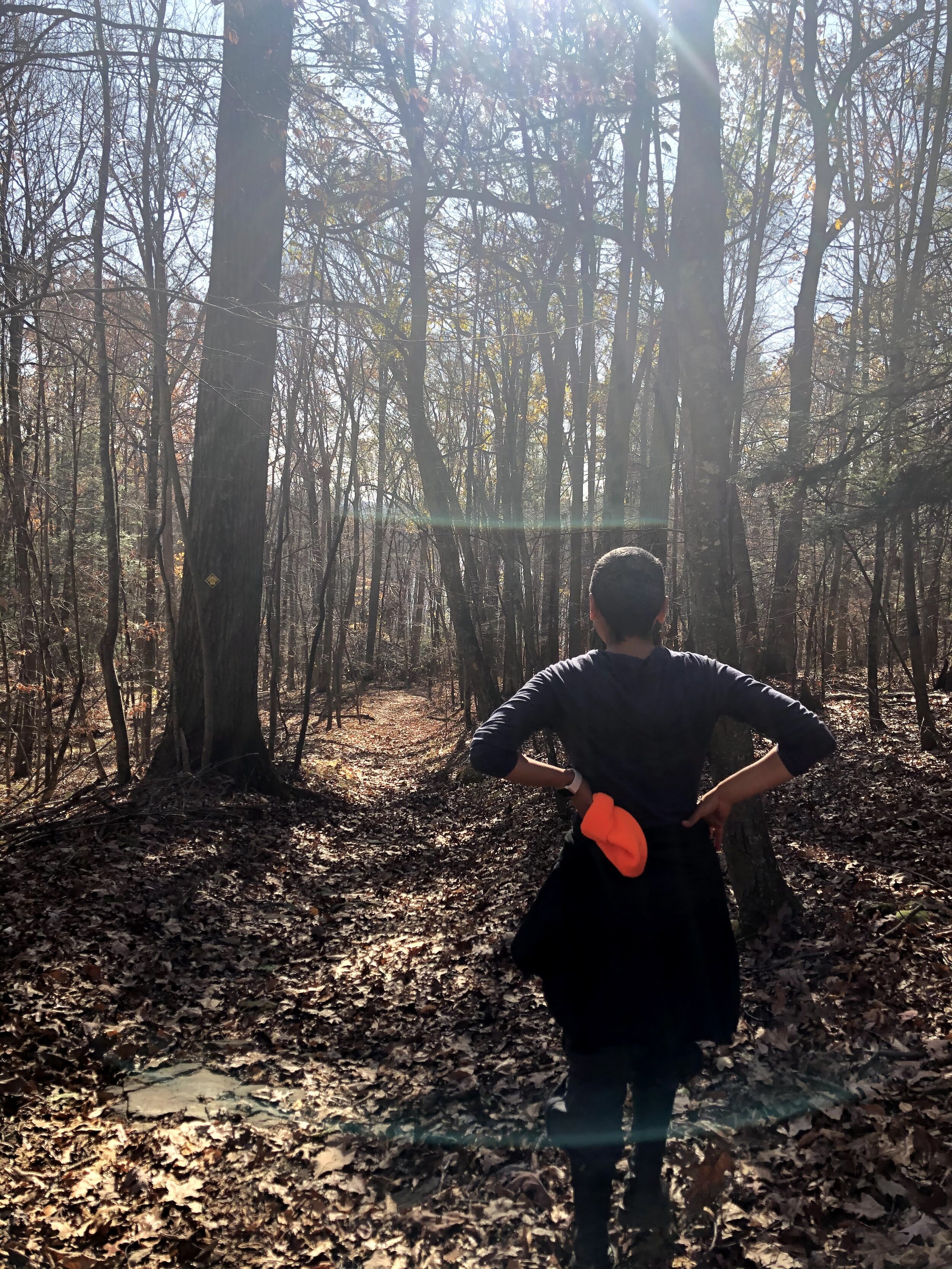
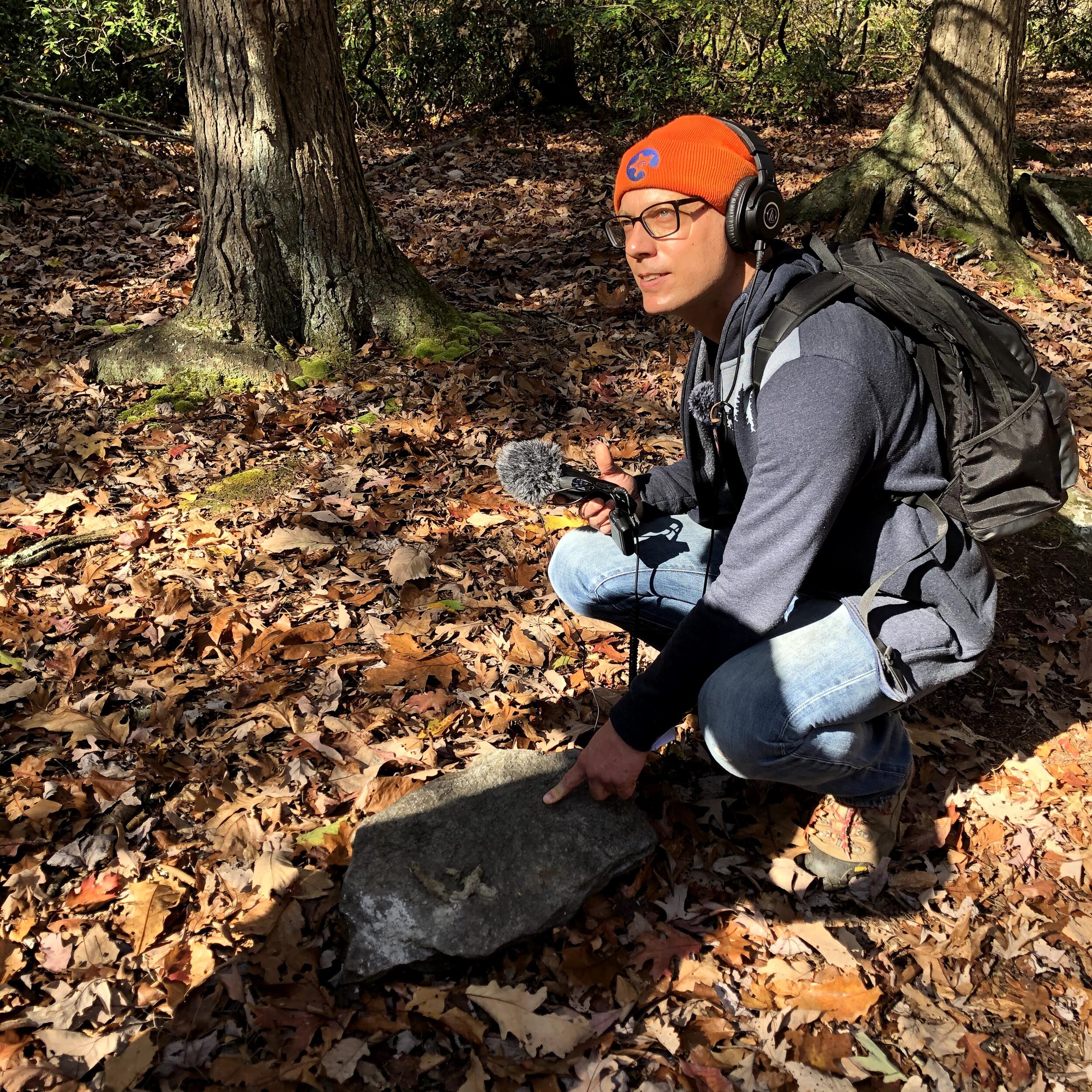
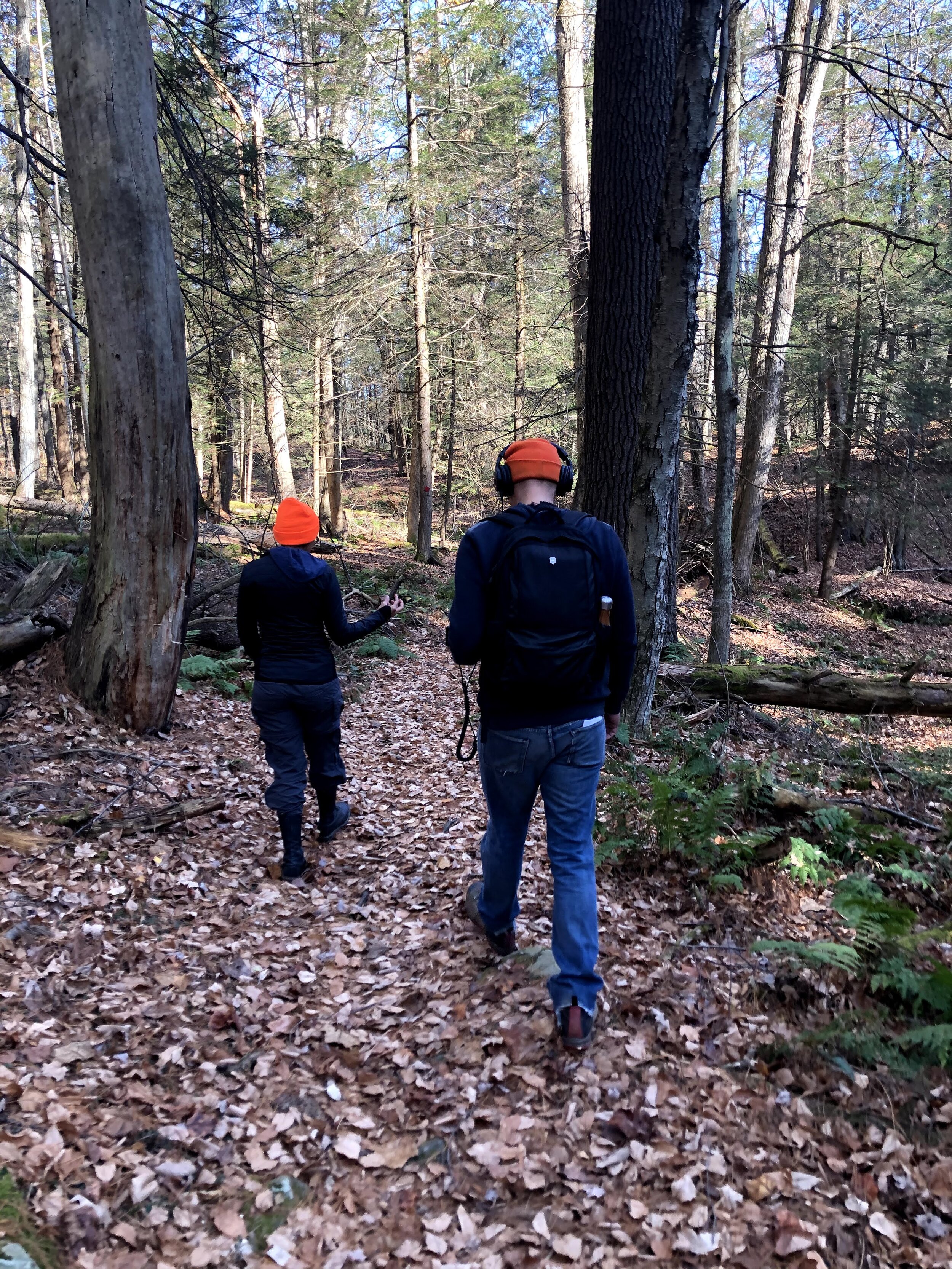
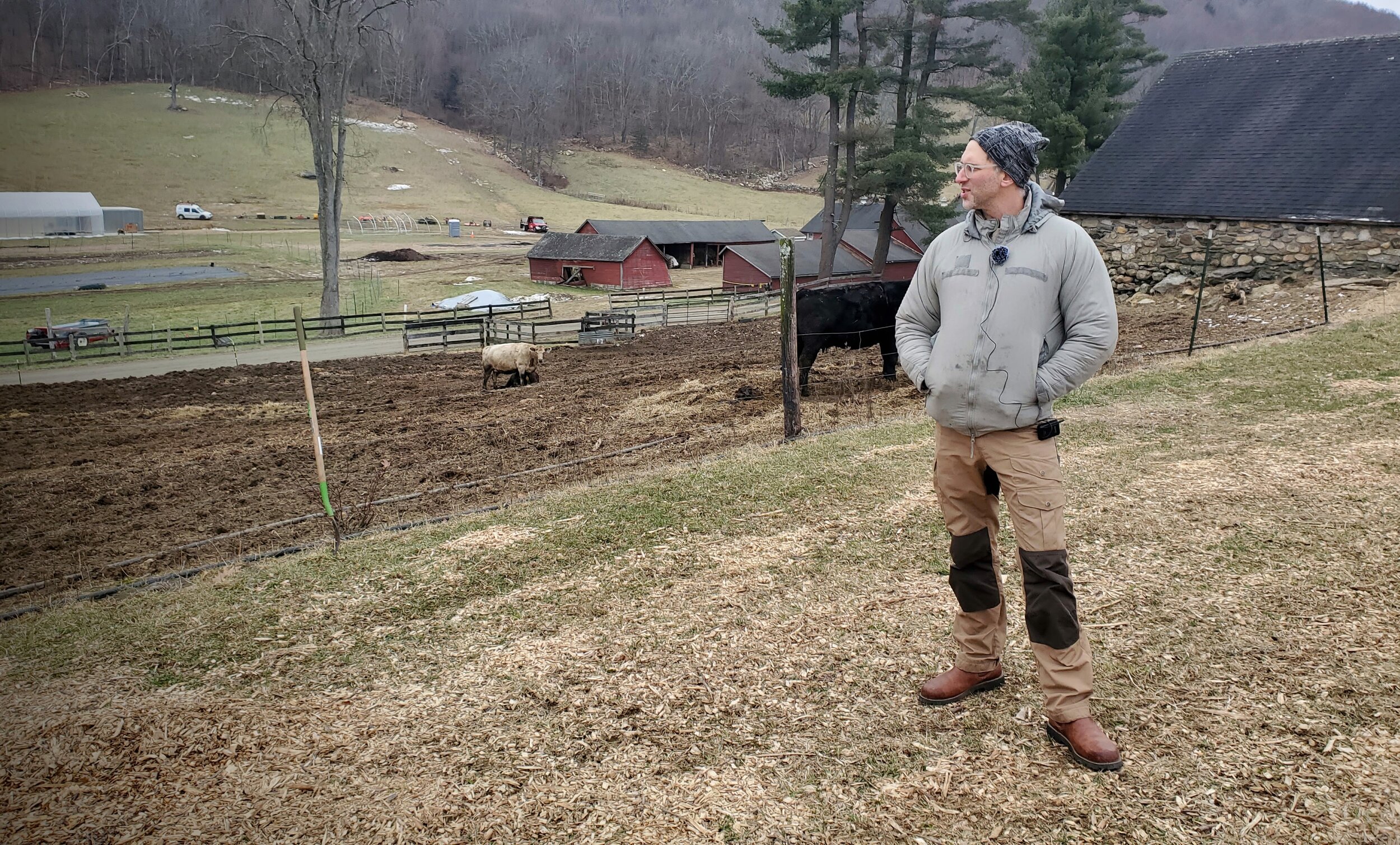
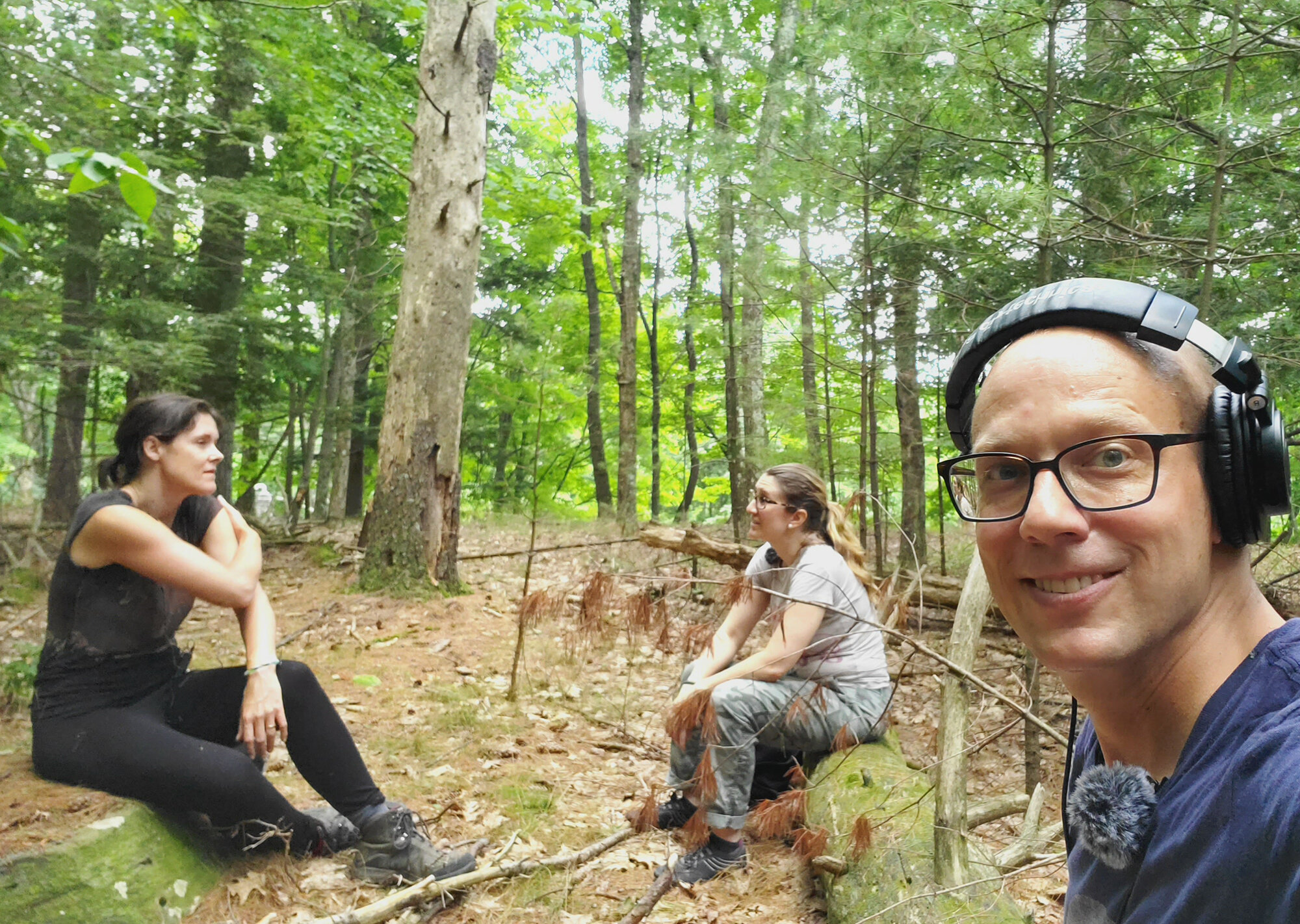
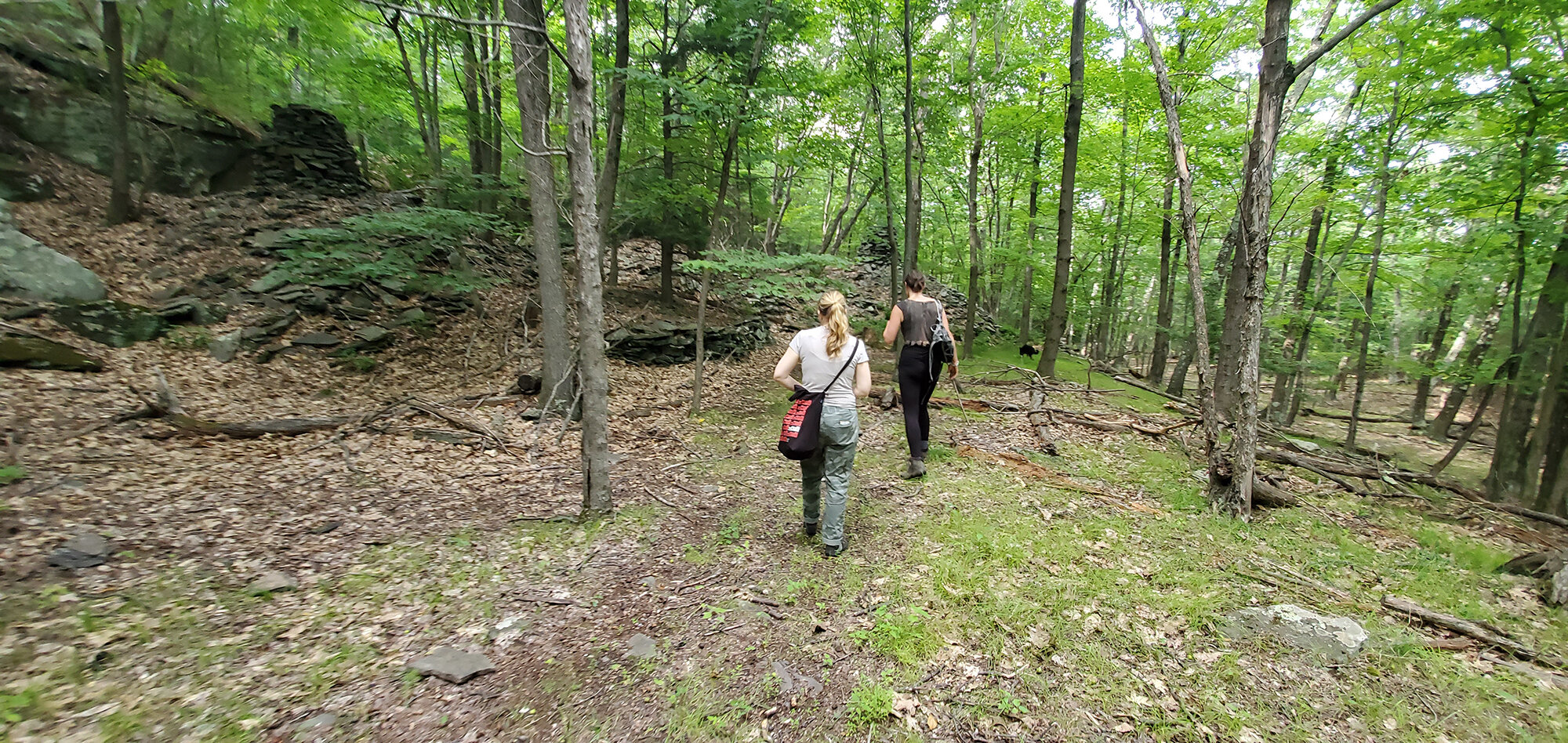
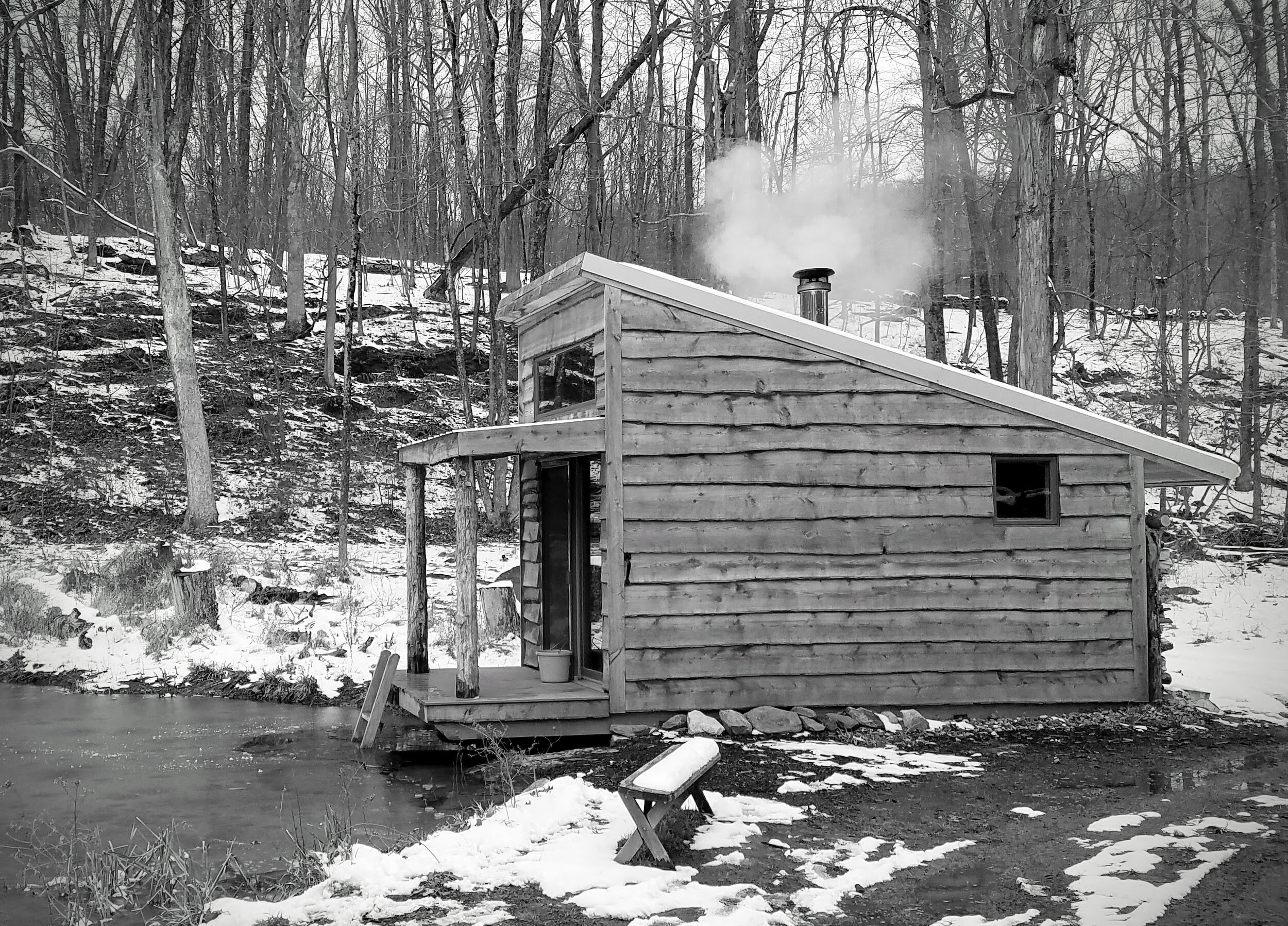
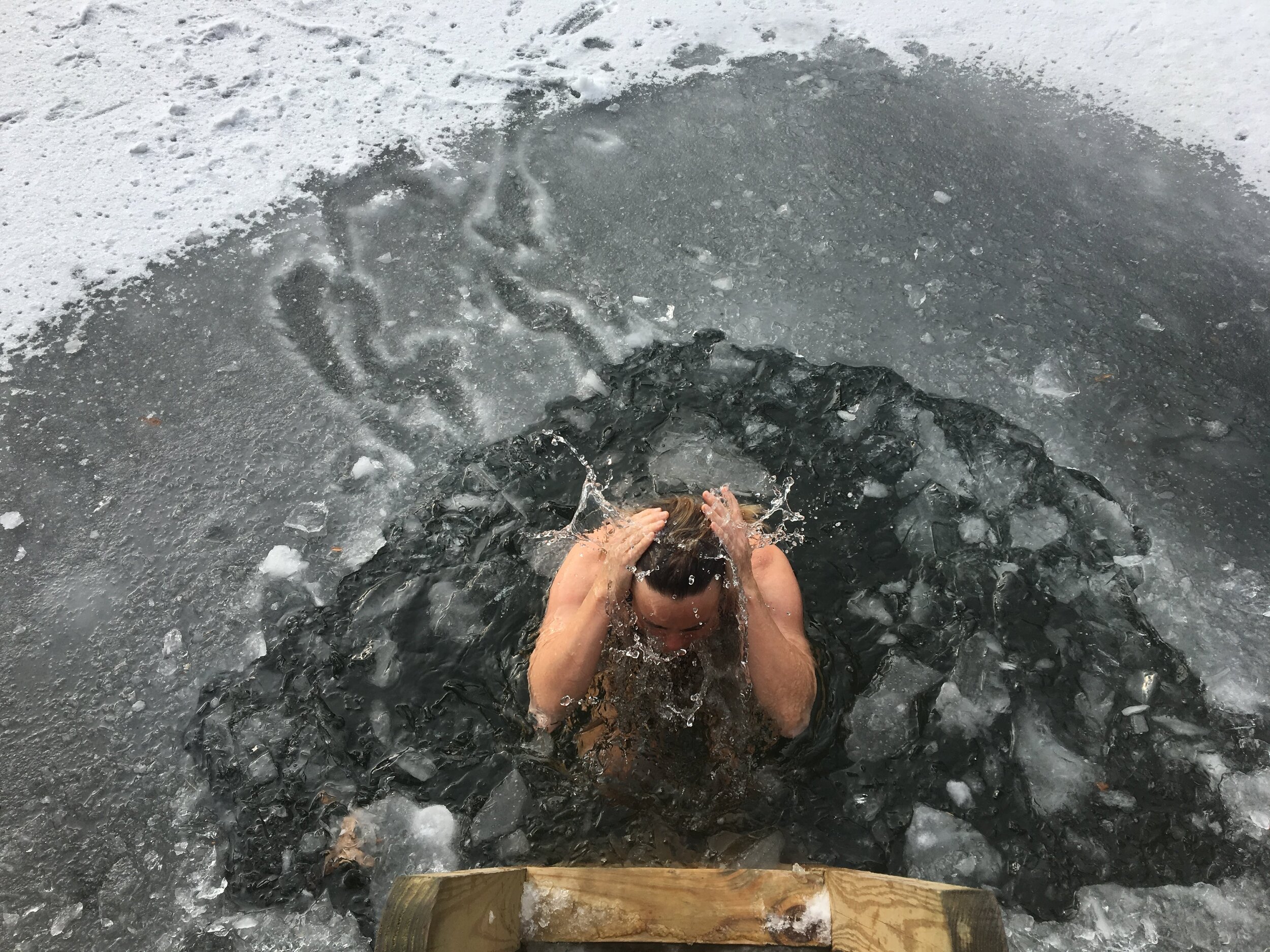
Transcript
Jay:
So, that was New Year's Eve. And I was taking a solo sauna by our pond at home. I'm a pretty social person and the thought of not spending New Year's Eve around a bonfire with some friends and a bottle of whiskey had me down and the communal aspects of sauna are parts I usually cherish.
I have much to be grateful for in these trying times. And the least I can do is forego some midnight revelry, but it felt like much of 2020 had felt, unfamiliar, even surreal. My wife and daughters were asleep by 10:30. So I slipped down alone in the clear cold, under a crystal and blanket of stars and was surprised to have what may have been my most favorite and deeply satisfying New Year's Eve to date.
And precisely at midnight, I went through the hole I had made in the ice, spent maybe two seconds dunking in the breathtakingly cold pond water and emerged hollering into a new year. This moment would probably not have happened without the pandemic and for at least a lot of us, the opportunity to slow down, to be more alone, to go inward and be more reflective.
By nature, I resist slowing down. My default mode is probably best described by Rudyard Kipling's line, "Fill the unforgiving minute with 60 seconds worth of distance run." And I generally pay a lot of attention to nature and the seasons, but this past year has been different. The experience of winter in the midst of the cultural winter brought by the pandemic has been profound, and it seems I'm not alone.
In a number of conversations Emily and I have had in the past six months with Wild Talk guests, this theme around the value of embracing fallow times in our lives surfaced again and again. These winters often show up on our doorsteps as uninvited illness, divorce, death, depression, anxiety, career challenge, or simply larger weather patterns, whether meteorological, organizational, or societal.
So I want to share three conversations with leaders in the domains of farming and food, social movements and reform, and humanitarian work to help us unpack this notion of what it means to winter well. In her New York Times, bestseller published in November 2020 entitled, Wintering the Power of Rest and Retreat in Difficult Times, Katherine May writes, "We are in the habit of imagining our lives to be linear, a long march from birth to death in which we mass our powers only to surrender them again all the while slowly losing our youthful beauty. This is a brutal untruth. Life meanders like a path through the woods. We have seasons when we flourish and seasons when the leaves fall from us revealing our bare bones."
I met up with my friend, Josh for a brisk walk recently to talk about winter. Josh is the former president of Slow Food USA, founder of the Yale Sustainable Food Project, and is currently working on a new project as the co-founder of the Harlem Valley homestead. Our conversation began on the farm in Wingdale, New York, by the banks of the 10 mile river before we walk through fields and woodlands past cows and piles of brush.
Josh:
The Harland Valley homestead is a diversified working farm, committed to environmental sustainability. We have an amazing herd of beef cattle that we rotationally graze. We grow amazing heritage pig breeds in the woods and use that to convert some of those woods into silvopasture, which is a mixture of trees and pasture, egg production. We have a lot of vegetables, greenhouses, mushroom production, cut flowers.
We sell to the local community, mostly through a community supported agriculture or CSA. And we also go to farmer's markets and during COVID have had an online farm stand where people could come up and pick up curbside food from the farm.
Jay:
What is happening on the farm right now?
Josh:
Right now it's quiet. We're doing a lot of the inside work planning for next year. The cows are corralled in one little area, getting fed hay and baleage, which is sort of like kimchi for cows. We wrap it up and let it lacto ferment. A lot of the animals went to freezer camp already. So they're in freezers, waiting for sales for next year. The vegetable production is mostly stopped. We're ordering seeds and thinking about our crop plan for next year.
Jay:
How does that contrast to say, mid summer?
Josh:
Winter and summer contrast sharply here. Mid summer, there are cows out on pasture. They're moving every day. The pigs are oinking in the woods and go bonkers when you come out there because they see you bringing them some food, chickens are bouncing around pasture. We've got customers coming and picking stuff up.
When we're not in the middle of a global pandemic, we have programs all the time where people are learning how to do beekeeping or how to do a cut flower garden at home, or any number of things, cooking workshops, cooking with fire, we're sharing meals on the farm. And it's a lot of frenetic energy that contrasts really sharply with the winner. There's sort of this mad rush of doing all your photosynthesizing and growing when the world's metabolic rate and the amount of sun allows you to.
And then it all kind of slows way down in the fall, and then really comes to a, not a halt, but a really slow pace starting in December.
Jay:
Like a hibernation.
Josh:
It's hibernation time. Winter for me, especially this year with changes happening in my life and also with the pandemic, it's teaching me about surrender. It's teaching me about energy, energy budgeting. It's teaching me about slowing down and about being instead of doing. I think about all the creatures and how much they have to slow down in the winter and how delicate and tight the margin is on their energy budget. One of the reasons there's a deer season that closes December, January, depending on the state is deer store all their fat and then their metabolism slows down in the winter.
And if it's a cold period and you scare a deer and bounce it around the woods a few times, that can be a death sentence for it, its energy budget is so tight. If a chickadee gets bounced out of its nest on a 20 degree night, that might be a death sentence, their margins are so tight from an energy standpoint. That for me, that is a lesson about how maybe sometimes the best thing to do is to be still, and there's a lot of wisdom and healing in being still.
And it's something that I think we, I know I personally have judged or have negative feelings about, like if I'm not doing something I'm not being productive and on some level, it's not listening to our own body and biology's wisdom about our healing, our self-care that, if we can just be still, a lot of good things can happen inside us.
I think about the beavers right now. They were busy beavers all summer, grabbing little branches with Cambium and stacking them up in their beaver dams and getting ready for the winter, getting ready. And then when the winter sets in, basically all they do is move very slowly and eat Cambium, nurse.
Jay:
In their lodge.
Josh:
Every now and then if there's a thaw or they run out of something, they'll go out there. But each time a beaver goes outside in the winter, they risk that the energy they expend is greater than the energy they gain. They risk predation. If beavers had Netflix, they would just be chilling in there, catching up on Better Call Saul and not doing, they wouldn't be busy beavers. They would be winter beavers, they'd be inside and letting themselves heal, slowing the metabolism slow, they would eat their Cambium and not eat at all before spring.
Otherwise, they've got to get out there and to not eat at all before spring, they have to slow their metabolism down. So they have to really slow down. And I think one of the things that's been sad about this winter for me is one of the sorts of rejuvenation that I find I really get a lot out of is it's not just sitting by the wood stove solo, it's also being together with people, sharing meals inside, cooking over a big fire in the fireplace and-
Jay:
Sauna.
Josh:
Sauna. I miss saunas. I miss going to sauna at your place and being with other people and sharing. I think sharing what our hearts are working through in the winter time when we're doing that introspective living is, it's one of the ways that we feel in community and a lot of creatures, not all, but a lot of creatures that I pay attention to in this ecosystem are clustered together.
When I think about images that capture winter, I think about creatures I've encountered in the summer and fall and where they are and what they're doing right now when it's cold out. And it's cold today. I think about, we're really close to a tree, that Oak over there, where not this last fall, but the fall before a bear started to climb into the tree when I was hunting out of it.
And I hollered at it and it ran away and it was exciting and really neat to be that close to a bear. But I think that that bear is somewhere within probably a half mile of here really quiet and still right now, tucked up in a dark place. And we encountered each other in a very alive moment, a very energy filled moment. I see the image of just me sitting at the wood stove looking at the embers, poking them in the morning, trying to get the house warm again, cats kind of looking at me like when are you going to get this place warmed up and the stillness of that.
The other image I have is when you look at the woods in the winter, all the leaves are gone, how everything just becomes its sort of raw architecture and all of the sort of movement in life of capturing solar energy has stopped and fallen to the ground. And all you see is the scaffolding and how you notice, I notice I feel like, I notice things that I wouldn't notice with all the bustle of photosynthesis about the shape of the words, about where they are in succession, about the way animals are moving through them.
Jay:
I think there's really something there on the getting down to the bones and things, I think bones and winters, there's some sort of resonance there and that, I mean, we just saw those bones on the field but for me that doing some deeper architectural shifts, and reworking that architecture for the next summer, as a scaffold, for the next summer's growth.
And I think that can't happen in the summer because you can't see it, you don't have time. And so I feel like the pandemic has been a cultural winter this whole year, right? And now we're on the winter of that winter in the deepest, darkest moment of that. And I feel like there's this opportunity with everything laid bare and all the revelation that this apocalypsis has lent, both personally, interpersonally, institutionally society looking at the bones of it all saying, look, that, well, that's real bad. We better fix that. Let's get in there and re-architect that, or let's divest, let's burn this. Let's put this in a pile and burn it and get rid of it and then let something else come in.
Josh:
Yes. I mean, I think on some level, winter is a time for going internal and rest and hibernation. There can be a comfort in that, but winter is also a time where things are really laid bare. You see the shape of land, you see the shape of trees. And so it becomes a time for really candid truth telling and truth noticing. And I think that, that's something that's, I hope happening, especially at a national level right now.
Jay:
Something, an idea that I've been playing with is that corporations, companies around which a lot of people orient their work in this country, it seemed to be in a perpetual state of summer and that every quarter performance and what medicine does wintering or winter have for companies potentially and practically, how could you see organizations trying to adapt wintering practices?
Josh:
That's a really good question, Jay. I mean, I think one of the challenges is diverging sense of purpose. If your goal is growth, always winter's the enemy to be overcome. If your growth is some level of stability that can sustain, then winter is fantastic. And so I wonder if one of the challenges that a big corporation would have in trying to take any lesson from winter is winter's just counter to their purpose.
They're there in a context in which growth is the most important thing. And so it's hard for them to gain solace from, or feel necessarily like there's a wisdom in winter, which is fundamentally about slow rejuvenation so that you can be there for the long haul.
Jay:
This notion of seasons for organizations was something that came up when Emily and I went for a walk last summer in the foothills of the Catskill mountains with Chloe. Chloe works at Open Philanthropy, helping donors strategize about how to make the most impact in criminal justice reform. She applies the seasonal model broadly to social movements, individuals and institutions.
Chloe:
The winter is a sort of a cold, quiet, reflective time. You can't really build things. You can't grow anything, but you can plan and you can recover, you can rest as maybe are like to the extent people had ancestors in ancient Europe in the ice age, you basically try to sleep the whole winter, rushed most of the time and they were very active in summer.
So winter is cold and quiet and we'll come back to it. Spring, starting to see some buds, new activity. It can be a hungry time though, because your winter stores have run out and you haven't yet hit a real summer. Then summer, it's hot, it's flourishing, there's abundance, a lot of activity. And then the fall is starting to cool off, but you hopefully get some kind of harvest and you store up for the winter, figure out how you're going to last through the next winter.
So on a movement level, winter would be, no one's talking about my issue. Can't get any traction. I think immigration is in a winter, for example, because even though we have these moments, like the border crisis when people all were paying attention to kids incarcerated at the border, that was a short, that was like a hot day in January, unseasonably warm.
But then it goes back to feeling you can't catch any traction. You can't get anything done. And that it's just politically impossible. Spring, there's a lot of new organizations, new things happening, maybe, maybe. And we were in a kind of a debate several months ago of where are we in criminal justice, there's a lot of good prosecutor stuff happening. Is that kind of like a mild summer?
Are we still in spring? Did we pass? Are we know in fall? Where are we? And then Jordan Floyd happened and we're like, oh, this is summer. This is what we're talking about. And where the heat is the public attention. And there's people on the move, your movement is growing. People are signing up. People are learning, reading about it, talking about it, making podcasts about it.
That's summertime. And what summer does is, again, sets up the conditions for a good harvest. If you want to pass something big, like the civil rights act, for example, in the '60s, the bus boycotts and all of that activity set the conditions where that felt kind of essential. Like the political bodies have to give in some kind of way.
Emily:
Perhaps even inevitable.
Chloe:
Well, something has to give when the people are in the streets for a really long time. I mean, you could just try to repress it, or you could give, there's a nice frog, or you could give in, but what are the politicians going to give in on is also important. Do you want a bridge renamed after John Lewis? Or do you want the voting rights act reinstated? Obviously we'd like to have both, but there's a certain kind of, where is the energy of the moment going to be directed?
So the thing about the seasons is, and there's a lot of interesting things about this model, but one is to recognize the extent to which people are normally living their lives like, wouldn't it be better if we were always in summer? Can we keep the attention in heat? We just want to stay in this moment where people care about our issue or in your own life. I just want to be flourishing in this energy, but staying in summer too long, you just get cooked.
It's hot, you get dried out, you run out of ideas, you overuse the land. You need to restore, you need to go through some stages to be able to have a series of bountiful summers, which on the movement level, as you can imagine, winter, spring, summer, fall, winter, spring, summer, fall, or actually from summer to summer, good summer, through the seasons, next summer, next summer, if you want to achieve a big goal like the abolition of prison, it's not going to happen in one year, movement year so to speak, not one calendar year, obviously.
But winter, spring, summer, one cycle will not get you to abolition, but maybe you could plot a course and say in five jumps, we could get there or three jumps. If this summer we get to here and establish these principles and have this many people paying attention and change these laws then next summer we could get to here and so on. And I found that really helpful because normally it's just like, from now to the future, let's hope that public attention always stays in our issue so we can just fight and fight and fight and get there.
And this seasonal model gives you a sort of a rhythm in a sense that you'll achieve a bunch, then you need to have your fall, have your harvest, go back to your winter, replenish retrained, rest, fix the tears in your organizations, get yourself ready and think, what's the next thing we're going to go for. But it's very rare that people in movements are thinking like that.
Like, great, looking forward to our winter because our next summer, I think people worry that the next year will just never come or the winter will last for 50 years. So on the personal level, the seasons are important too, because people ... Carlos will say, respect your winters. Don't fight it. People are like, oh God, my energy is down. They're feeling disappointed and depressed that they don't have the ability to produce. They don't have the ability to produce.
And people then think like, it's just really bad. It's just really hard. They want to fight that feeling and maybe be ashamed of it or in an organization feel like I'm supposed to be directing this organization, but I'm in this personal winter and my movement is in summer, but we don't have the ... If you have the language for it, you can say, oh, this is what's going on. I'm in winter. You're in summer. So here's how I'm going to engage and be helpful even though I can't be manic right now.
Jay:
It gives you permission to lie fallow.
Chloe:
Yes. And recognize that, I mean, perhaps one could say capitalism pushes us to produce, produce, be in summer all the time, which is totally exhausting and unsustainable instead of to kind of follow your rhythms and to recognize if you have a death in the family, you might be slapped into winter.
Or if you know something else external happens, you might be snapped into summer. It's not that everything is some set amount of time and you just have to wait, but there are these kind of, if you can be attuned to where you are, where your organization is, where the movement is, you can much better kind of relate to who else is in my same season. How does the fact that I'm in this season affect people around me?
Can I be transparent and acknowledge that? And then strategically on the movement level to say, oh, we're in spring, let's get ready for a summer moment, I think it's going to come. So what will we need to be ready? What will we wish? Because in summer, you can't build anything. You got what you got, but you could anticipate, well, if we're going to have a summer movement, I will wish that we had done 50 more trainings of this kind so let's do those and then be ready.
Jay:
Zainab is an activist, humanitarian, author and founder of Women for Women International, originally from Iraq. We went for a walk with Zainab late last fall in Pawling, New York when she recalled an experience of observing a native American winter dance. In her telling we were reminded that ritual and ceremony can not only leave threads of culture and meaning, but can mark seasonal transitions for individuals and communities alike.
Zainab:
Well, have you heard about the Buffalo dance near Mexico, in Taos, New Mexico? There's one time I went to a Buffalo dance and literally all the men wear buffalo skins and head dress and all of that, all the women dress up, a big feast. This is a very private, I was one of 20 none natives who are interested to go.
I don't think it's close, but imagine this amazing dance and not many people would go, right? And the way they did is they would dance fiercely like, dance, dance, dance, and the women are chanting and the men are dancing and drumming and all of that. And then that's the last dance is in January. And after that, they let earth take its time to sleep. And then they until spring go slower in their lives and the rule, the tradition is that you speak softer with each other. It's almost like the earth is sleeping, so we have to-
Emily:
Spring outside the door.
Zainab:
Right. So you have to exactly. So the culture is all about, we do this fierce dance, get all the energy out, let earth sleep. And we will reemerge and we will sleep. And we will reemerge with it in spring. Now, a lot of my friends who are like, oh my God, it's so cold in the winter. We have to go out, go to Florida, go to whatever. I don't have judgment by the way, God knows, maybe one day I'll get there, for me, there's something magical about witnessing the dropping of the leaves and the winter and the cold. It's like the buffalo dance, I feel like rather than escape it we need to witness it and be present to it rather than just like, oh my God, I have to escape.
That, in that presence, there is teachings. And there's allowing ourselves to also slow down rather than hopping from one excitement to the other, like one stimulation to the other. That's the addiction, of we have to, but what's wrong with being present and slowing down in winter and having the leaves come. I mean, there's poetry I feel in it, that allows a system of life to work itself. And now that I live in nature, I mean, you've been in nature for a while, I feel like everyday is a new painting I'm witnessing.
Jay:
I personally find it very hard to do nothing. And I even, when I do spend a lot of time in nature and working on the land, but in the winter I could be cutting wood and chopping wood and so on. I do have to consciously-
Zainab:
But that's fine, but that's being in present to that season. I'm not saying don't do nothing. And they don't, obviously they work. I have to operate as well, right? But it is allowing for winter to arrive and being in the presence of that season. I didn't mean do nothing. It's not everyone can, I can't.
Jay:
Just slow down a bit and be present.
Zainab:
Just allow the season to come, and allow to darkness to arrive earlier. And that is okay to do that. And in the breathing through it, I feel there is a learning for me, but God knows, maybe I'll get another age and I was like, I'm out of here. I don't know. So I can judge others, right? But there's poetry for me to winter.
Emily:
I love that notion of almost the world's clock insists, right, with getting darker. No, no, no, no, no, no different rhythm right now. Just like the pandemic sort of forced us to insist on that longer time.
Zainab:
And it allows us to witness, it allows me to witness nature, witness the death and the arrival and the, all of that. Witness my behavior, how I change in winter and how I change in spring. Witness, you're just witnessing.
Jay:
Thank you for joining me friends on this meander into winter. As we emerge into spring and emerge from this pandemic, remember to move slowly, cautiously and compassionately as you come out blinking in the sunlight. Katherine May in Wintering, again, offer some wisdom through the lens of the Gaelic festival of Imbolc, usually celebrated at the beginning of February, halfway between the winter solstice and the spring Equinox.
She writes, "In contemporary Ireland it is still often marked as St. Brigid's Day, a Christianization of the feast of that ancient goddess Brigid, who is now stirring. Bridget is all promise in life, bursting with readiness to bring about change. She's well rested after her winter retreat. Like Bridget, we must emerge slowly from our wintering. We must test the air and be ready to shrink back into safety when blasted by unseasonal lens, we must gradually unfurl our new leaves.
There will still be the debris of a long disordered season. These are the moments when we have to find the most grace. When we come to a tone for the worst ravages of our conduct in darker times, when we have to tell truths that we'd rather ignore, but we are brave and the new world awaits us gleaming and green alive with the beat of wings and besides, we have a kind of gospel to tell now, a duty to share it. We who have wintered have learned some things. We sing it out like birds. We let our voices fill the air."
